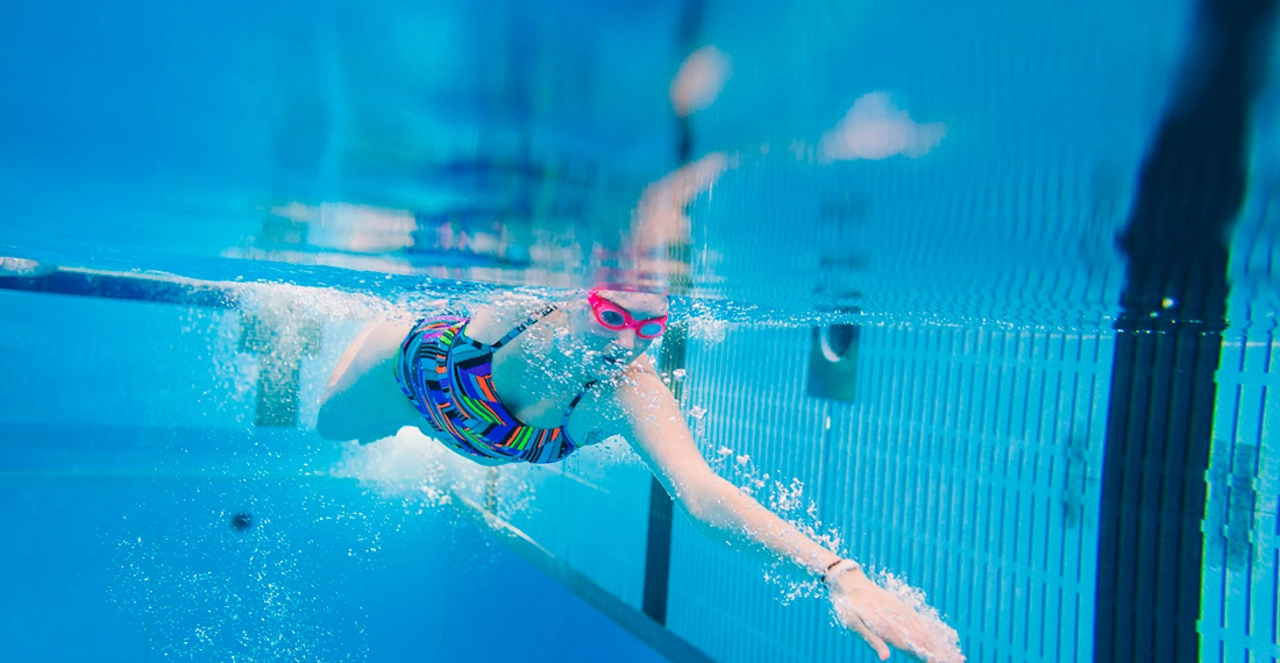
Understanding Freestyle Swimming
Before diving into the question of whether it's healthy to swim freestyle every day, let's take a moment to understand what freestyle swimming is. Freestyle is a type of competitive swimming that involves swimmers using any stroke they prefer. However, most swimmers choose the front crawl – the fastest swimming stroke – when competing in freestyle events. The front crawl is characterized by its alternating arm movements, flutter kicks, and rhythmic breathing.
Swimming is a full-body workout that engages various muscle groups, including the arms, legs, and core. It is also a low-impact exercise, making it an excellent option for those with joint pain or mobility issues. With these benefits in mind, let's explore whether it's considered healthy to swim freestyle every day.
The Benefits of Daily Freestyle Swimming
Swimming freestyle every day offers numerous health benefits. For one, it provides an effective cardiovascular workout, which can improve heart health and stamina. Regular swimming has also been linked to lower blood pressure and reduced risk of heart disease. Additionally, it is a great way to burn calories and maintain a healthy weight, as swimming can burn up to 500 calories per hour depending on your pace and intensity.
Furthermore, swimming freestyle engages multiple muscle groups, helping to strengthen and tone your body. It can also improve flexibility, as the constant stretching and reaching motions required in freestyle swimming help to loosen up tight muscles and joints. Moreover, swimming is a low-impact exercise, which puts less strain on your joints compared to other forms of exercise like running or weightlifting. This makes it an excellent choice for those with joint pain, arthritis, or recovering from an injury.
Listen to Your Body
While swimming freestyle every day can be beneficial, it is crucial to listen to your body and avoid overtraining. Overtraining occurs when you do not give your body enough time to recover between workouts, leading to a decrease in performance and an increased risk of injury. To avoid overtraining, pay attention to any signs of fatigue, such as muscle soreness, decreased performance, or difficulty sleeping.
If you notice any of these signs, consider taking a rest day or incorporating other forms of low-impact exercise, like yoga or Pilates, into your routine. Remember, it is essential to allow your body time to recover and adapt to the stress that exercise places on it. By doing so, you are more likely to maintain a healthy and sustainable relationship with exercise and avoid potential injuries.
Technique Matters: Preventing Injuries
One potential concern with swimming freestyle every day is the risk of injuries, particularly if you are not using proper technique. Shoulder injuries, such as rotator cuff issues or impingement, are common in swimmers due to the repetitive nature of the sport. To minimize the risk of injury, it is essential to focus on proper technique and body alignment while swimming.
Some tips for maintaining good technique include:
- Keeping your head in a neutral position and looking straight down to avoid straining your neck
- Rotating your body from side to side to engage your core and reduce stress on your shoulders
- Using a smooth and continuous arm motion to avoid placing unnecessary strain on your joints
Recovery and Nutrition
If you plan on swimming freestyle every day, it is essential to prioritize recovery and nutrition. Proper recovery involves getting enough sleep, staying hydrated, and incorporating stretching or foam rolling into your routine. Sleep is especially important, as it is the time when your body repairs and rebuilds damaged muscle tissue. Aim for at least 7-8 hours of quality sleep each night to support optimal recovery.
Nutrition also plays a crucial role in fueling your workouts and supporting recovery. Be sure to consume a balanced diet rich in lean protein, complex carbohydrates, and healthy fats to provide your body with the nutrients it needs to perform and recover. Focus on consuming a mix of protein and carbohydrates within 30 minutes of your workout to replenish glycogen stores and promote muscle repair.
In conclusion, swimming freestyle every day can be a healthy and beneficial form of exercise, provided you listen to your body, use proper technique, and prioritize recovery and nutrition. By doing so, you can enjoy the numerous physical and mental health benefits that swimming has to offer, while minimizing the risk of injury and overtraining.